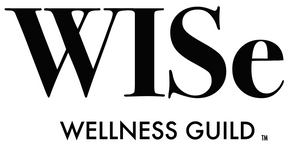
Financial Planning 101: Estate Plan – What You Need to Know Now About Planning for Issues of Incapacity and Death

Image by Monstera on Pexels
As we flip the calendar into the second half of 2022 already, it is a perfect time to review our financial priorities and make sure we have ourselves organized and on track at the midpoint.
With the global pandemic becoming part of our everyday lives, conversations involving healthcare proxies, or last will and testaments have become more common. This may certainly lend itself to a broader conversation around what really are the most important documents one should have in place for ourselves and our family.
Often, financial planners suggest that every adult, age 18 and older have an estate plan.
The concept is not hard, but it certainly can be a difficult conversation to have. Emotionally, we don’t like to discuss or consider a time when we or a loved one has passed. A well thought out estate plan is a “gift” to family members as it lays out “who gets what.” It is a plan done by your wishes and not by some state statute. Often, financial planners suggest that every adult, age 18 and older have an estate plan.
Basic documents you should have to help with issues of incapacity and death are as follows:
-
Last Will and Testament – summarizes the disposition of our property subject to probate
-
Healthcare Power of Attorney (Healthcare Proxy) – establishes who is responsible for making medical decisions in the event we are incapacitated
-
Financial Power of Attorney – establishes who is responsible for making financial decisions in the event we are incapacitated
-
Living Will – document that spells out end of life medical care
-
Guardianship Designations – who will be the guardian of your children in event of your death; can be incorporated in a will also
- Beneficiary Designations – these documents operate as a will substitute and potentially pass assets outside of probate court
This certainly is not a comprehensive list. But, if some of these documents are more than 5 years old, it might be time to dust them off for review.
I like to use the term start by starting. Start by thinking of who would be best suited to be guardian to your young children and think through the logistics of that. Or making an inventory of family heirlooms that you detail in your will to whom you wish to have those items. You need not have everything figured out to start, but it is important to check these boxes. And once you do, please don’t leave it on the table, execute the documents.
My message is simple, don’t leave it on the table.
Here is a story I often tell when I reflect on the importance of general estate planning documents... A few years ago, a client of mine died suddenly. She had been ill for some time, but her disease was in remission. Her children were very close to her, and she often spoke about leaving “a little something” for them. We discussed the importance of getting her financial house organized and she did have her estate plan documents drafted. Regrettably, she died before she executed them. She left them neatly in the binder ready to be signed. Leaving no will, and no named executor. What she left for her kids was a probate mess. My message is simple, don’t leave it on the table. We all understand that life happens, and our wishes may change. Start the process to draft the documents. Sign the documents, update as needed, and this will ensure your wishes are carried out.
Christine Schaub is a Wealth Management Advisor with over 32 years of experience in financial services. She can be contacted at christine.schaub@53.com.
Learn more about Of Note, a wealth network for women, powered by Fifth Third Private Bank, and connect with a wealth advisor.
Sign up for our newsletter for weekly wellness you can trust.
Join us on Instagram at @wise_wellness_guild for daily inspiration, community spotlights and wellness resources.


Leave a comment